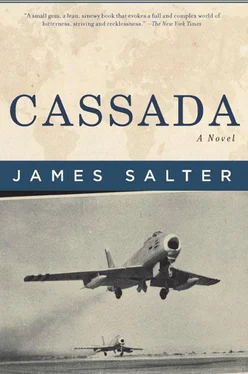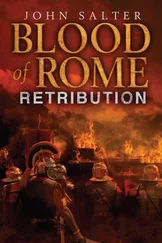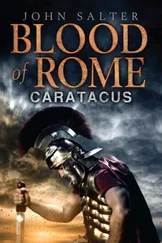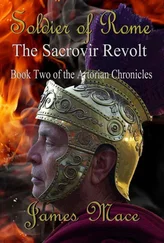Not long after, the second train came, exactly on time. The enameled sign on the side of the cars read, FRANKFURT (M).
“This is ours,” he said, gathering the luggage. Marian took the children’s hands.
Aboard, it hardly seemed a minute before they were moving. Isbell sat watching it all for the last time. They curved through switchyards and down along the Rhine. He could see the wind blowing outside, warm and full of good things. The forked-end flags in all the river towns were waving. Couples strolled along the shore. Beneath the trees the bicyclists flashed, passing through sunlight and shade.
I was afraid you had been killed, she said.
It would take more than that.
Who was it, then?
Do you remember the lieutenant who fell head over heels in love with you that night?
That nice one?
Yes.
Him.
It was too soon for him to reappear, that would come years after when all of it was sacred and he had slipped in with the other romantic figures, the failed brother, the brilliant alcoholic friend, the rejected lover, the solitary boy who scorned the dance. It is only in their lives they die. In yours they live to the end.
The photograph Isbell remembered was of wildebeests coming down a steep embankment, hundreds of them in the dust haze that was their life, leaping, plunging into the shadowy darkness, the young ones with them, running, leaping, blood rich with excitement, among them the one who might lead one day. And in that one wild heart, everything.
You’re going back to the States, then?
Next month.
So, I don’t see you again.
I don’t know. You’ll see me again.
No. Never.
Well, anyway not for a while.
It’s hard to live like that.
For me, too.
For you it’s different.
Ja. But you never know. Maybe sometime.
Good-bye, Tommy.
The river was wide. On it the boats were moving, the big white sightseeing boats, the side-wheelers and barges. Memories seemed reflected from the shining water.
“Are you sleepy, dear?” Marian asked.
“What? No. Just thinking.”
“I guess we’re going to miss it.”
“Yes.”
It was all passing, for the first time as well as the last. His eyes devoured everything yet hardly made things out. He did not know what he was thinking. It all seemed a long struggle which he could not decide if he’d won or lost. Parts of it he could hardly remember. The rest was still clear. But it was all back, falling behind. There was no use trying to save anything. After a while you began to understand that. In the end you got on a train and went along the river.
The Hunters
The Arm of Flesh
A Sport and a Pastime
Light Years
Solo Faces
Dusk and Other Stories
Copyright © 2000 by James Salter
All rights reserved under international and Pan-American Copyright Conventions. No part of this book may be used or reproduced in any manner whatsoever without written permission from the Publisher, except in the case of brief quotations embodied in critical articles and reviews.
This book is a work of fiction. Names, characters, and incidents either are products of the author’s imagination or are used fictitiously. Any resemblance to actual events or persons, living or dead, is entirely coincidental.
Library of Congress cataloging-in-publication data is available.
ISBN 978-1-61902-129-7
Text design by David Bullen Design
Cover design by Gerilyn Attebery
Cover photo courtesy of the author
COUNTERPOINT
1919 Fifth Street
Berkeley, California 94710
www.counterpointpress.com
Distributed by Publishers Group West
10 9 8 7 6 5 4 3 2 1












